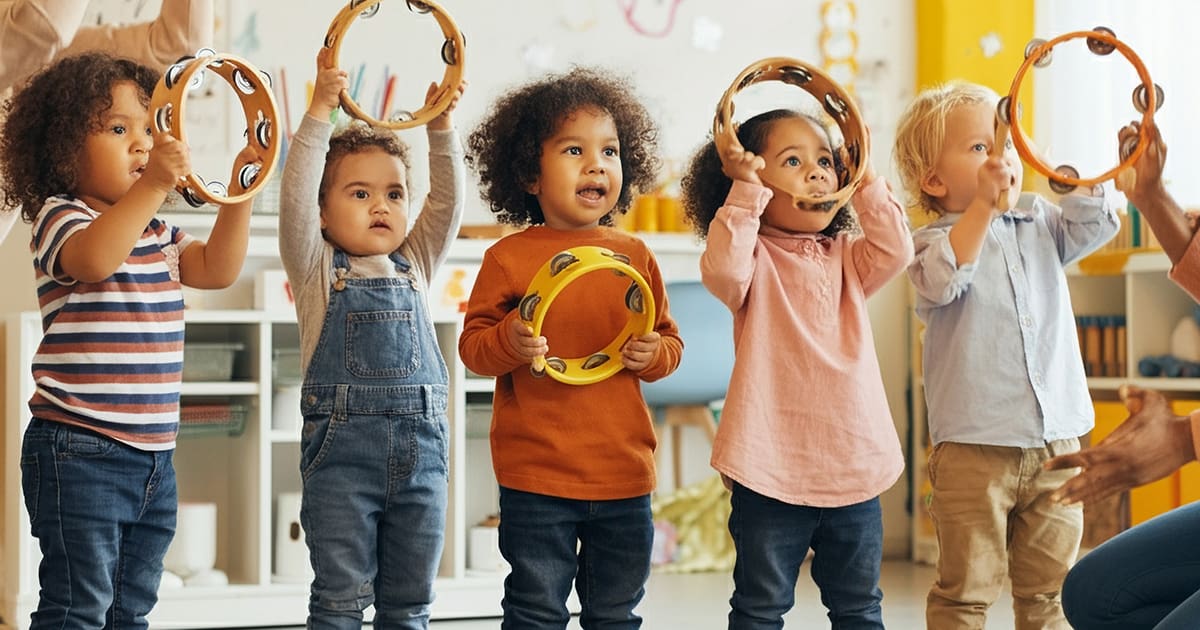Share this Post

What to expect in your baby’s first year—and when to seek support
The first year of life is an exciting period filled with rapid growth and countless new experiences. From lifting their head during tummy time to saying their first word, babies go through many key developmental changes in their first 12 months. These early accomplishments, known as developmental milestones, give us valuable insight into how your baby is progressing across areas such as movement, communication, sensory processing, and emotional connection.
At CST Academy, we work with families to monitor and support infant development through our comprehensive Pediatric Therapy program. Whether your baby is meeting expected milestones or seems to need extra help, understanding what’s typical in the first year can give you the confidence to support their growth—and the clarity to know when to ask for help.
Key Developmental Areas in the First Year
During infancy, development is typically tracked across five main domains. Each area plays a vital role in how your child learns to interact with their environment:
- Gross Motor: Building strength to roll, sit, crawl, and eventually stand
- Fine Motor: Developing hand-eye coordination and grasping skills
- Speech & Language: Early coos, babbling, and beginning to understand simple words
- Social & Emotional: Bonding with caregivers, smiling, expressing basic needs
- Cognitive: Exploring surroundings, recognizing people and objects, cause and effect
It’s important to remember that while these milestones typically happen in a certain order, each baby develops at their own pace. Some infants may walk before they talk, while others focus on communication first. That said, delays in multiple areas or a lack of progress over time may warrant a developmental screening.
Infant Developmental Milestones by Age Range
0–3 Months
- Raises head and chest while on tummy
- Opens and closes hands, begins to swipe at objects
- Responds to loud sounds or familiar voices
- Smiles in response to interaction (social smile)
- Follows moving objects with eyes
4–6 Months
- Rolls from tummy to back and vice versa
- Pushes up with arms while lying on tummy
- Begins reaching for and grasping toys
- Laughs, squeals, and uses more vocal sounds
- Shows recognition of familiar faces and voices
7–9 Months
- Sits without support
- Transfers toys from one hand to another
- Responds to their name
- Babbles with repeated sounds (e.g., “ba-ba”, “da-da”)
- Begins showing stranger anxiety
10–12 Months
- Pulls to stand and may take first steps holding furniture
- Uses pincer grasp to pick up small objects
- Understands simple commands like “no” or “come here”
- Says simple words like “mama” or “dada” with meaning
- Shows affection and imitates gestures such as waving
When to Be Concerned
While all babies develop at their own rate, there are a few signs that may indicate your child could benefit from extra support. If your baby is consistently not meeting milestones or seems to stop making progress, it’s a good idea to check in with your pediatrician or schedule a developmental screening.
You may want to seek support if your baby:
- Does not smile or show interest in faces by 3 months
- Has difficulty holding their head up by 4 months
- Does not roll over in either direction by 6 months
- Does not babble or make sounds by 7–8 months
- Shows little interest in interacting with others by 9 months
- Is not crawling, standing, or using gestures like pointing by 12 months
These signs don’t always mean something is wrong—but they are important indicators that early intervention may help. At CST Academy, our team offers evaluations that look at the whole child and provide clear next steps if support is needed.
How CST Academy Supports Infant Development
Through our Pediatric Therapy services, CST Academy provides individualized, play-based intervention to support early development in infants. Our licensed therapists work closely with families to create customized care plans in the areas of:
- Speech Therapy: Supporting early communication, listening, and social interaction
- Occupational Therapy: Promoting fine motor development, sensory processing, and self-soothing
- Physical Therapy: Improving muscle tone, balance, crawling, and gross motor skills
- Feeding Therapy: Addressing difficulties with bottle feeding, transitioning to solids, and oral motor skills
Early therapy can make a significant difference in helping babies build the foundation for future learning and independence. Whether your child needs ongoing support or just a bit of a boost, our team is here to help your baby reach each new milestone with confidence.
Looking Ahead
Once your baby celebrates their first birthday, they enter toddlerhood—a whole new chapter of growth and exploration. To continue learning what’s typical at each stage, be sure to read the next article in our series:
And if you haven’t already, start from the beginning with our full guide:
What Are Developmental Milestones? A Parent’s Guide
Get Support Early
If you have questions about your baby’s development, trust your instincts. You don’t need to wait until something feels “wrong” to reach out for guidance. At CST Academy, we offer developmental screenings, consultations, and a full range of pediatric therapy services to help infants thrive from the very beginning.
Click here to schedule a free consultation today
Frequently Asked Questions
Are all babies expected to hit milestones at the exact same time?
No. There is a wide range of what’s considered typical. Some babies develop motor skills faster, while others may talk sooner. What matters most is consistent progress over time.
Is it okay if my baby skips crawling?
Sometimes! Not all babies crawl before they walk, but it’s still important to monitor other gross motor skills. A pediatric therapist can help assess overall development and coordination.
What if my baby seems behind in more than one area?
Delays in multiple areas may suggest that your child could benefit from therapy. CST Academy can provide a comprehensive evaluation and personalized care plan.
How can therapy help infants this young?
Infant therapy is gentle, interactive, and tailored to your child’s developmental level. The earlier we begin, the more we can support long-term growth in communication, movement, and independence.
Discover Our Pediatric Therapy & Autism Care
ABA Therapy
Support for children with autism.
Diagnostic Evaluation
Expert assessments to identify child needs.
Pediatric Therapy Services
Speech, Occupational, Feeding, and Physical Therapy.
Therapeutic Preschool & Kindergarten
A classroom environment designed for early learners with unique needs.

CST Academy Pediatric Therapy for Developmental Milestones in Infants
Supporting early growth through nurturing, play-based therapy for babies under 12 months.
The first year of life is filled with rapid changes, and reaching key developmental milestones is essential for healthy growth in infants. CST Academy’s Pediatric Therapy program provides early intervention that supports motor skills, communication, and sensory development in babies showing signs of delay or needing a boost. With a warm, family-focused approach, our expert team helps lay the foundation for future progress—starting from the very beginning.

Find the Best Care for Your Child




